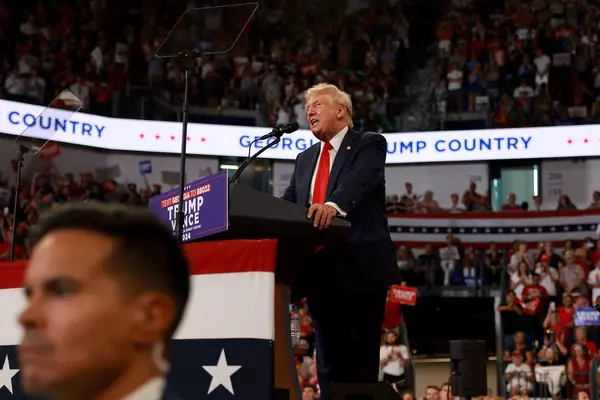
In the past fortnight or so, the action has speeded up. The chairman of the ruling Conservative Party resigned after by-poll results showed a swing in votes to the Liberal Democrats, Britain’s second opposition party, of almost a third. Then came the revelation that the prime minister had used an official plane to go on holiday with his family to the coast of Cornwall. By the standards of the Johnson regime, which has also been criticized heavily for the involvement of a prominent party donor in funding the refurbishment of his Downing Street flat, this indiscretion seemed minor. Expectations of propriety are now so low that it is difficult to define what a political scandal actually is anymore. As the Guardian columnist Nesrine Malik observed, “Political norms are being sanded away. The expectation of consequences for dishonesty and malpractice in high office begin to dissolve."
The open letter of a respected former senior foreign office bureaucrat on Tuesday that revealed the prime minister had been fully briefed on allegations of sexual misconduct against Chris Pincher, later appointed deputy chief whip of the Conservative party, may at last be the impropriety that Johnson cannot wave away. His strategy of using nicely coined half-truths and evasion in the manner of Sir Humphrey Appleby, the senior civil servant in Yes Minister, is now likely to come unstuck. The allegations against Pincher are that he groped male Tory members of parliament. The bureaucrat’s letter revealed that such charges against Pincher are not new. Worse, it showed that the government and the prime minister were aware of a prior probe into Pincher’s behaviour. Downing Street’s spin doctors may have run out of wiggle room. On Tuesday, their new position was that the prime minister had simply forgotten about being briefed about that investigation.
For chancellor of the exchequer Rishi Sunak and health minister Sajid Javid, this was too much. Both resigned, sparking other resignations. “The public rightly expect government to be conducted properly, competently and seriously," Sunak said in his resignation letter. “I recognise this may be my last ministerial job but I believe those standards are worth fighting for." Speaking to the BBC, Michael Heseltine, whose challenge for Conservative party leadership in 1990 paved the way for Margaret Thatcher’s ouster after her poll tax debacle, dismissed comparisons of Sunak and Javid’s resignations with that episode. Heseltine denounced the Brexit campaign led by Johnson as “a pack of lies" and criticized his government for devaluing Britain’s prestige in the eyes of the world.
The empty promises of the Brexit campaign included tall tales emblazoned on London buses of hundreds of millions of pounds being returned to the UK from the EU if it broke away and that money being used to fund the National Health Service instead. Now these bluffs hang over the UK in its summer of discontent. The Confederation of British Industry forecast recently that next year might see economic growth of just 1%, and possibly a recession. Inflation, meanwhile, has hit double digits with even recent readings of core inflation (excluding fuel and food) in excess of 8%. The UK’s economy is slowing faster than its developed-world peers in large part because it is reaping the downside of exiting the world’s largest trading bloc in such spectacularly messy fashion. The Johnson government’s hankering for bilateral free trade agreements with countries as far-flung as India and Japan reveals either a lack of understanding of how 21st century supply chain networks tend to be regionally focused or another triumph of cynical realpolitik over real economics.
At the street level, the consequences of high inflation eating into disposable income are all too real, however. This summer has seen a wave of industrial action. Regional rail strikes have alternated with strikes on the fabled London tube. Protests against fuel price hikes have erupted too. Staff shortages are visible across the hotel industry. And yet, as any visitor to the UK will tell you, its ‘keep calm and carry on’ spirit still prevails.
Flying British Airways again after more than a decade in the wake of staff cuts of a few thousand during the pandemic, I was surprised by how good humoured and capable the flight crew remain. Deal with a British bank, by contrast, and one begins to have sympathy for those ill-treated by state-run banks in India. The capital, meanwhile, has been dubbed Londongrad because successive governments, Labour and Conservative, have made it all too easy to launder money through the city. The expectation, expressed many times in the past few months and again on Tuesday, is that this time the British prime minister must resign. Regardless of when Johnson eventually calls an end to the tacky Netflix narrative he has scripted, the problems his government set in motion for the UK, of poor trade competitiveness and inflation control, look set to last a decade at least.
Rahul Jacob is a Mint columnist and a former Financial Times foreign correspondent.







